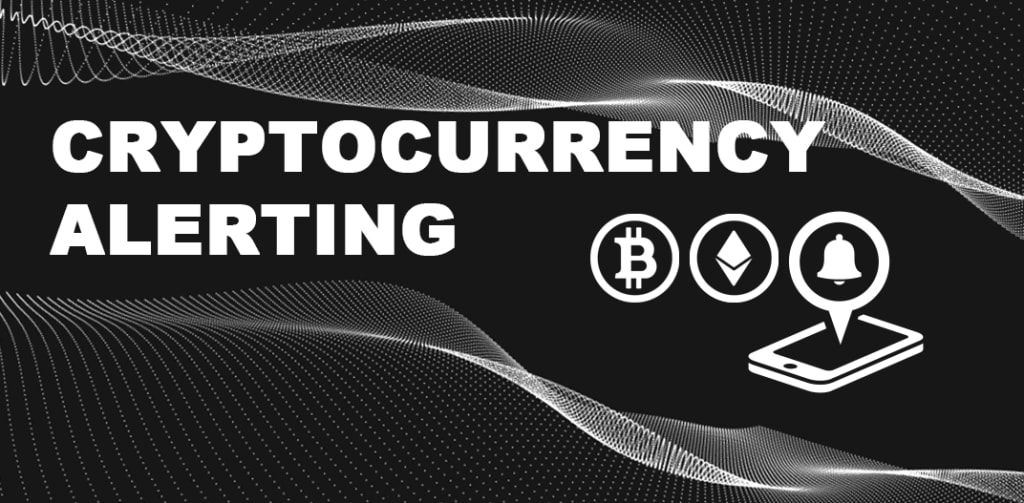The controversy surrounding Binance's staking services
Allegations against Binance US and BAM Trading

Article Outline
Introduction
Overview of the SEC lawsuit against Binance and CZ
Charges and allegations made by the SEC
Binance functioning as an unlawfully operating Securities Market
Offering unregistered crypto assets
Misrepresenting the platform's security measures
Analysis of the charges and their implications
BNB token and its connection to unregistered Securities
The controversy surrounding Binance's staking services
Allegations against Binance US and BAM Trading
Misuse of customer funds and trading volume manipulation
Diversion of funds to Sigma Chain
Inflating trading volume through fraudulent means
Binance's response to the allegations
Vehemently defending the business and denouncing SEC's actions
Disputing claims of operating as an unregistered Securities Exchange
Impact on everyday investors and the crypto market
Listing of additional unregistered Securities
Comparisons to previous statements on crypto regulation
Evaluation of alleged co-mingling of funds and poor financial controls
Access to customer funds by external entities
Concerns raised by former CEO of Binance US
Diverging perspectives on the SEC lawsuit
Supportive tweets from industry figures
CZ's dismissal of the allegations and focus on system stability
Conclusion
FAQs
What are the implications of the SEC lawsuit for Binance users?
Will Binance's operations be disrupted by the lawsuit?
How does the SEC's actions align with its previous stance on cryptocurrencies?
What is the potential impact on the broader cryptocurrency market?
How will Binance respond to the frozen assets and legal proceedings?
SEC Sues Binance and CZ Over Securities Violations
The recent news of the U.S. Securities and Exchange Commission (SEC) filing a lawsuit against leading cryptocurrency exchange Binance and its founder Changpeng Zhao (CZ) has sent shockwaves through the crypto community. The SEC has levied multiple charges against the exchange and its key figures, accusing them of engaging in deceptive practices, conflicts of interest, lack of disclosure, and evasion of the law. These allegations carry significant weight and have far-reaching implications for both Binance and the broader crypto market.
Introduction
In what can be described as one of the most significant developments in the crypto space since the collapse of the infamous Mt. Gox exchange, the SEC's lawsuit against Binance marks a critical moment for the industry. The allegations made by the SEC paint a picture of a web of deception, unlawful operations, and disregard for investor protection. This article aims to dissect the charges, analyze their implications, and shed light on what this means for everyday crypto investors like you and me.
Overview of the SEC Lawsuit against Binance and CZ
The SEC's lawsuit against Binance and CZ alleges a wide range of violations, stemming from the exchange's alleged functioning as an unlawfully operating Securities Market. The charges also accuse Binance of offering unregistered crypto assets to the public and misrepresenting the security measures in place to protect investors. These allegations carry serious consequences and could have a profound impact on the future of Binance and the crypto market as a whole.
Charges and Allegations Made by the SEC
The SEC's lawsuit against Binance boils down to three main points. Firstly, they claim that Binance is unlawfully functioning as a Securities Market. Secondly, they accuse the exchange of offering unregistered crypto assets. Finally, the SEC alleges that Binance misrepresented the level of protection provided to investors on its platform.
According to the SEC, Binance and CZ offered unregistered Securities to the general public through the BNB token and Binance-linked BUSD stablecoin. The lawsuit also claims that Binance's staking service violated Securities laws. While the BNB token and staking services are somewhat understandable, the inclusion of Binance's BUSD stablecoin raises questions regarding its classification as an unregistered security.
The charges against Binance extend beyond the exchange itself. BAM Trading, the operating company for Binance US, and CZ also face allegations of failure to register as a clearing agency, failure to register as a broker, and failure to register as an exchange. The SEC further alleges that Binance allowed the co-mingling of customer funds and that CZ exerted secret control over Binance US, with a CZ-owned entity inflating the exchange's trading volume.
Misuse of Customer Funds and Trading Volume Manipulation
The SEC's lawsuit also accuses Binance and CZ of misusing customer funds and engaging in trading volume manipulation. The suit claims that CZ diverted customer funds to a trading firm called Sigma Chain, which he controlled. This diversion of funds allowed Sigma Chain to engage in fraudulent trading, artificially inflating Binance's trading volume.
Additionally, the SEC alleges that Binance allowed U.S. persons to trade on its platform despite publicly stating otherwise. The SEC complaint cites a statement from Binance's Chief Compliance Officer, admitting that they were operating as an unlicensed security exchange in the USA. The lawsuit claims that Binance and CZ concealed their efforts to ensure that valuable U.S. customers continued trading on the platform while claiming publicly that they were not serving U.S. persons.
Binance's Response to the Allegations
In response to the SEC's allegations, Binance has vowed to vigorously defend its business and has called the SEC's actions unjustified. The exchange has expressed disappointment with the SEC's decision to litigate instead of engaging in productive dialogue. Binance maintains that it has not operated as an unregistered Securities Exchange and denies any illegal offering and sale of Securities.
Impact on Everyday Investors and the Crypto Market
The SEC's lawsuit has raised concerns among everyday investors in the crypto market. In addition to the charges against Binance and CZ, the SEC has listed several other cryptocurrencies, including BNB, Solana, Cardano, Polygon, Algorand, Sandbox, Axie Infinity, Decentraland, and Cosmos, as unregistered Securities. Notably, Ethereum holders can breathe a sigh of relief for now, as Ethereum was not mentioned in the lawsuit.
The SEC's actions raise questions about the agency's changing stance on crypto regulation. Previously, the SEC indicated that a significant portion of the crypto market did not fall under the definition of Securities. However, the inclusion of Binance and other cryptocurrencies in the lawsuit suggests a shift in their approach.
Evaluation of Alleged Co-mingling of Funds and Poor Financial Controls
The allegations of co-mingling customer funds and poor financial controls highlight serious concerns regarding Binance's operations. The SEC claims that external entities, such as Merit Peak Limited and Sigma Chain, had access to significant amounts of customer funds. This raises questions about the security and protection of investor assets on the platform.
Former CEO of Binance US, Brian Brooks, expressed concerns about the activities of Merit Peak and Sigma Chain on the Binance US platform. Brooks stated that the presence of these entities hindered customers from executing orders without their involvement. This suggests a heavy reliance on CZ, not only as a controlling figure but also as an economic counterparty.
Diverging Perspectives on the SEC Lawsuit
The SEC lawsuit has prompted contrasting responses within the crypto industry. Some industry figures, including the CEO of Crypto Quant data analytics firm, have shown support for Binance by highlighting the lack of major withdrawals from the exchange. On the other hand, figures like Charles Hoskinson, CEO of Cardano, believe that the lawsuit is part of a broader agenda to exert control over the financial lives of individuals.
CZ, the founder of Binance, has retweeted statements emphasizing that Binance is operating normally, with stable systems for withdrawals and deposits. Binance has released an official statement expressing disappointment with the SEC's allegations, asserting that they will issue a response once they have reviewed the complaint.
Conclusion
The SEC's lawsuit against Binance and its founder CZ has sent shockwaves through the crypto market. The charges of Securities violations, offering unregistered crypto assets, misrepresenting investor protections, and the alleged misuse of customer funds have serious implications for both Binance and the wider crypto industry.
As the legal battle unfolds, it remains to be seen how Binance will respond and whether the SEC's allegations will hold up in court. This lawsuit serves as a stark reminder to crypto investors to exercise caution and conduct thorough due diligence when choosing trading platforms and investing in cryptocurrencies.
FAQs
Is Binance shut down after the SEC lawsuit?
No, Binance has not been shut down as a result of the SEC lawsuit. The exchange continues to operate, and users can still trade cryptocurrencies.
What are the charges against Binance and CZ?
The SEC has brought multiple charges against Binance and its founder CZ, including allegations of operating as an unregistered Securities Market, offering unregistered crypto assets, and misrepresenting investor protections.
Will the SEC lawsuit affect my crypto investments on Binance?
The outcome of the SEC lawsuit could potentially impact the operations and reputation of Binance. It is important to stay informed and monitor the situation closely, but the specific impact on individual investments is uncertain.
What should I do if I have funds on Binance?
If you have funds on Binance, it is advisable to closely follow the developments of the SEC lawsuit and exercise caution. Consider diversifying your holdings across multiple exchanges and consult with a financial advisor for personalized advice.
Are other cryptocurrencies affected by the SEC lawsuit?
The SEC's lawsuit also includes allegations against several other cryptocurrencies, such as BNB, Solana, Cardano, Polygon, Algorand, Sandbox, Axie Infinity, Decentraland, and Cosmos, claiming they are unregistered Securities. Ethereum, however, was not mentioned in the lawsuit.





Comments
There are no comments for this story
Be the first to respond and start the conversation.